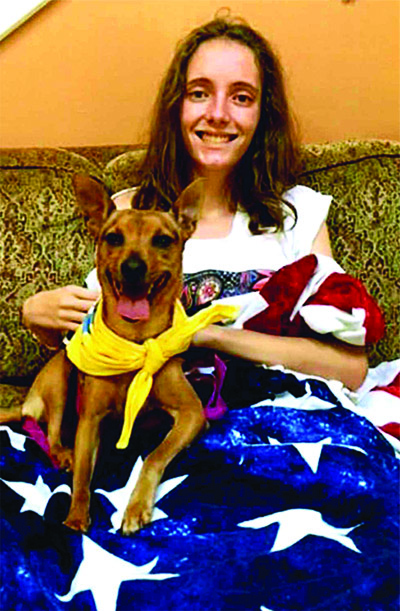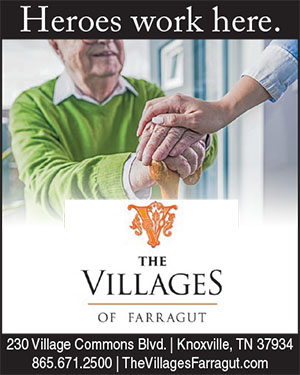FHS junior offers ‘Doggie Day Trip’ through Young-Williams
 Ariane Burt, Farragut High School junior and Girl Scout, with Lucy, one of the dogs at Young-Williams Animal Center she worked with as part of the “Doggie Day Trip” program she developed in partnership with the facility. Lucy was later successfully adopted.
Ariane Burt, Farragut High School junior and Girl Scout, with Lucy, one of the dogs at Young-Williams Animal Center she worked with as part of the “Doggie Day Trip” program she developed in partnership with the facility. Lucy was later successfully adopted.
The long-time Girl Scout and Farragut High School junior developed a collaborative project with Young-Williams Animal Center earlier this year that also qualified as her top-level “Gold Award” in scouting, similar to Eagle Scout projects for Boy Scouts.
The project, “Doggie Day Trip,” offers members of the community a chance to spend a day with a dog for socialization, exercise and perhaps even a chance at adoption.
“That way people can get to know the animals rather than just seeing them in the shelter,” Burt explained.
She said she had first thought of the idea several years ago on a family trip to Kauai, Hawaii.
“I walked by a shelter and saw that they had (Doggie Day) program, and it just stuck in my brain,” Burt said. “It was just something that seemed really cool.”
She said she did some research and saw where similar programs also existed in Denver, Colorado and outside of Washington, D.C.
She then contacted Young-Williams and met with organizers who wanted to pursue the idea.
Courtney Kliman, marketing manager for Young-Williams, said the center actually had been entertaining a similar idea for some time when Burt approached them.
“(Burt) was the brain behind it, but we had wanted to get the community more involved somehow,” Kliman said.
Burt worked with Jenifer Reed at Young-Williams on logistics, cost and specifics of the program, and estimated she put at least 80 hours into the project. She was even able to help design the web page on the Young-Williams site, which offers program details and the application prospective Day Trip participants must complete.
Burt also applied for and received the Joyce Mainschein Leadership Grant to get “Doggie Day Trip” off the ground. The money helped purchase water bottles, bandanas and other items.
Burt herself was one of the first to try out the program, bringing home “Lady,” which at that point was considered a difficult dog.
“She was (described as) just borderline adoptable,” Burt said. “They said she was really jumpy when she first came to them. Then we spent the day together. She seemed to change really rapidly, and by the time we got back she was much more warm and affectionate and wagged her tail a lot.
“(Young-Williams officials)later said they were amazed, and she was like a different dog,” then added, “We found out two days later that she had been adopted.”
That Burt would think up and develop such a project is a bit astonishing, since she had a fear of dogs, especially larger ones, from an early age.
“I think she wanted a dog, too, as she got older but had not really been around them much,” said her mother, Sharon Bryant, who confirmed Burt was frightened by a large dog as a child.
“This way I got to be around them and also overcome my fear,” said Burt, who also is the daughter of Allen Burt.
Involved in many other activities including HOSA, Mu Alpha Theta, cross country and track and field distance running, Burt hopes to become a zoologist or perhaps pursue a job in the medical field.
Burt said she has gotten great feedback from Young-Williams.
Anita Milstead, coordinator of the Doggie Day Trip program for Young-Williams, said she feels “it is going very smoothly.
“Folks who participate seem really excited for the opportunity to spend some time with a shelter dog without the responsibility of being a ‘regular’ volunteer,” Milstead added. “Some people even do repeat trips as their schedules permit.”
Kliman agrees the program “has been a success. (The shelter) can be a stressful environment for the dogs who come here, who might be used to being spoiled or used to more attention.
“The shelter is not equipped to provide that, but when people come and take them out it is an opportunity for them to get some attention. It also offers additional exposure, as the dogs need to be adopted.
“It is a win-win for us, and for the dogs.”


